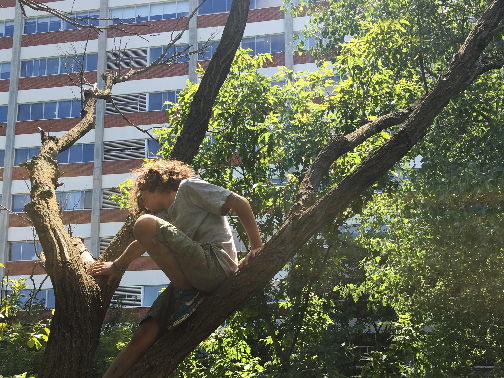
by Petra Eperjesi, Manager of National Programs, and Margaret Fraser of Le Lion et La Souris (The Lion and the Mouse).
Welcome to the fifth instalment of our series profiling Forest and Nature School programs in Canada. As part of our exploration, we spoke with Margaret Fraser, coordinator of Le Lion et La Souris, a not-for-profit organization that runs Forest and Nature School programs (and more!) in Montréal, Québec. Le Lion et La Souris will actually be hosting our Practitioners Course this July, and we will be observing their Forest School program as part of that course. Registration opens this Monday, March 5th. Please click here for more information.
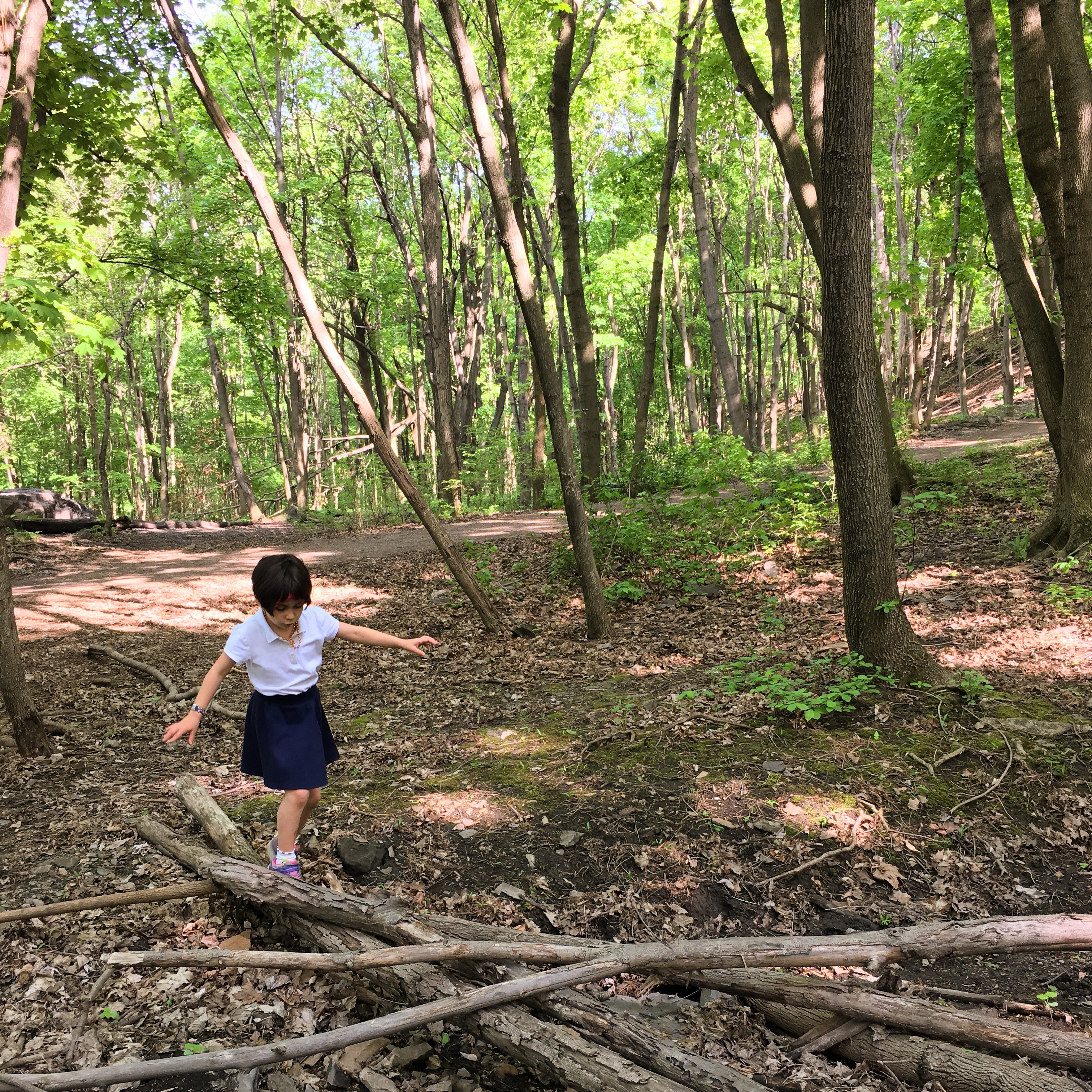
Hi, Margaret! Can you tell us a little bit about your organization?
Le Lion et La Souris (The Lion and The Mouse) is a non-profit play organization that brings life and play back into the urban green spaces of Montréal. While we work in a number of parks around the city, our home base is the Champ des possibles, a green space the size of a full city block that is jointly managed by a local citizen’s group, Les Amis du Champ des possibles, and the borough. The Champ is a former industrial site that, through lots of hard work and dedication from Les Amis, has become a green oasis tucked away in the neighbourhood of the Mile-End. Some of our favourite play spaces in the Champ include the hill, where kids can make their way through the trees and emerge from the other side feeling like the world is theirs, the apple tree, with perfect climbing branches, the maple tree, the perfect shelter from summer rain, and the container, where we keep our stock of tools and loose parts and where most adventures begin and end.
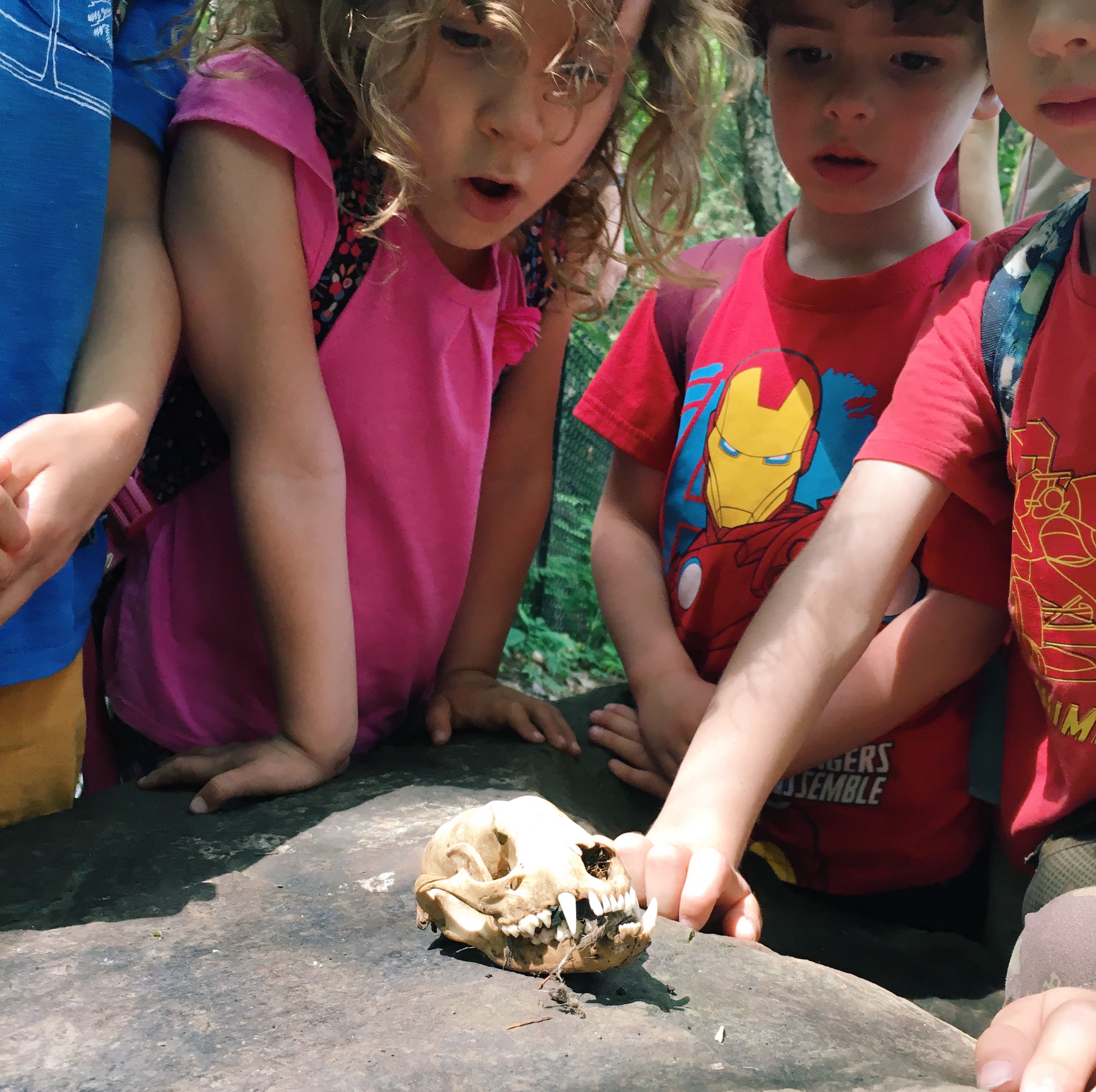
Can you describe your programs?
Our programs are all about making space for play. All kids need regular play opportunities, whether they are at school, in care, or at home, whether they are in the country or in the city. We know that the richest of play opportunities take place outdoors, in natural spaces that afford endless possibilities. Our programs take place completely outside (except in cases of extreme weather) in public parks and are designed to make play fit easily back into children’s lives and schedules. They are staffed by trained Playworkers who know how to embrace the world of urban nature and understand that, while we don’t have the deep woods, the city itself affords many play opportunities as well. In this way, our programs combine the best of nature and our urban environment for the purpose of play. We have two specialized programs that go beyond adventure play as well, our Noise Club and Mess Club. They incorporate music and process-based art, respectively, into our pre-school play programming.
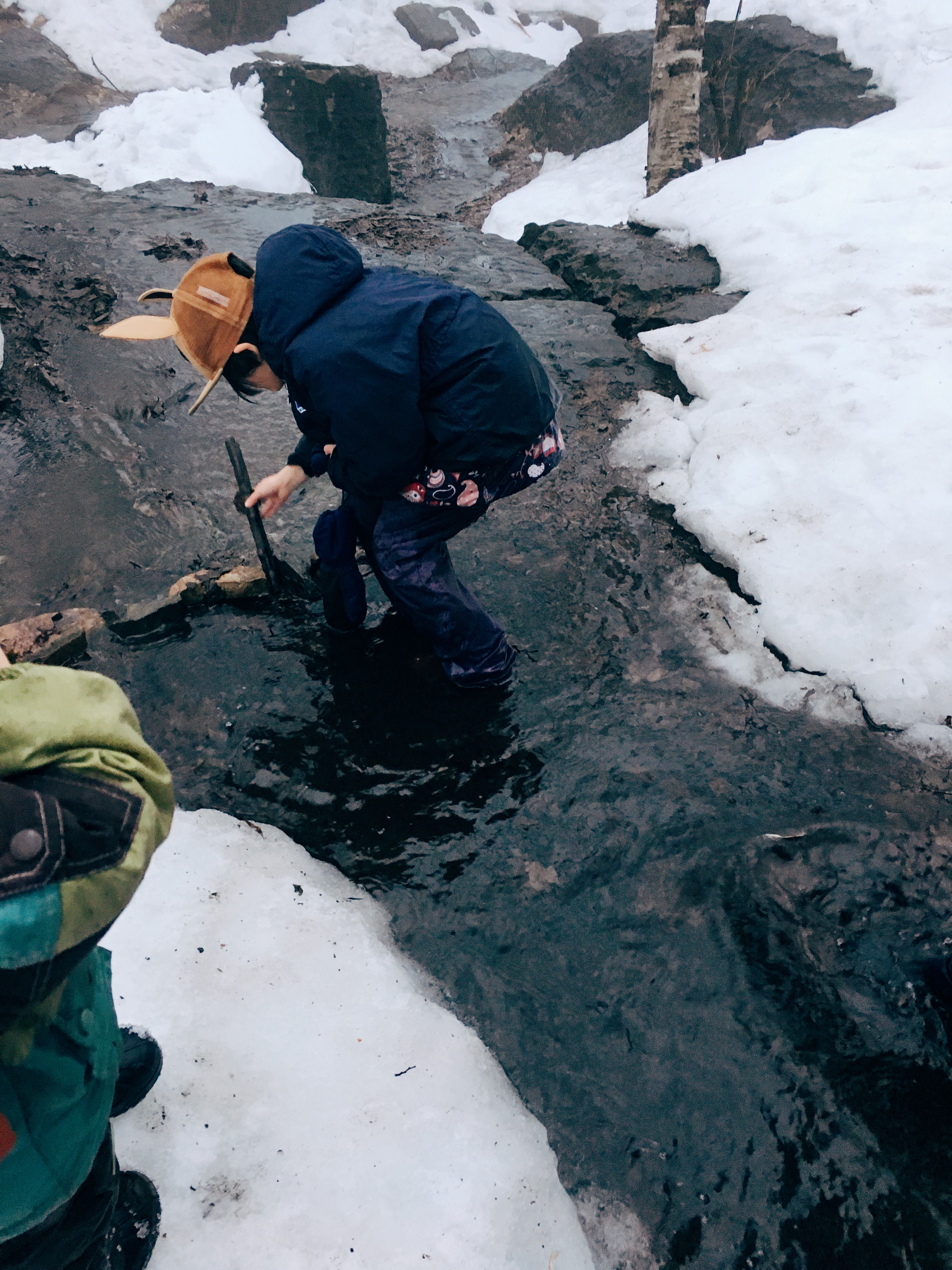
What is a “typical day” like?
A typical day starts with our Adventure Schoolers. These kids are 3-5 and join us for a morning of outdoor adventure play in the Champ des possibles. Depending on the day, we may also have our Parent & Toddler program where children 1-4 and their parents get outside and play together. In the afternoon we are joined by local homeschoolers for Adventure School Plus and once school is out we do school pick-ups for our after school Adventure Clubs. We also have Noise Club and Mess Club once a week.
In the summer, most of our regular activities take a break. We spend the summer months with our pre-school Adventure School and our summer Adventure Camp, as well as visiting a number of local festivals with Pop-Up Adventure Playgrounds.
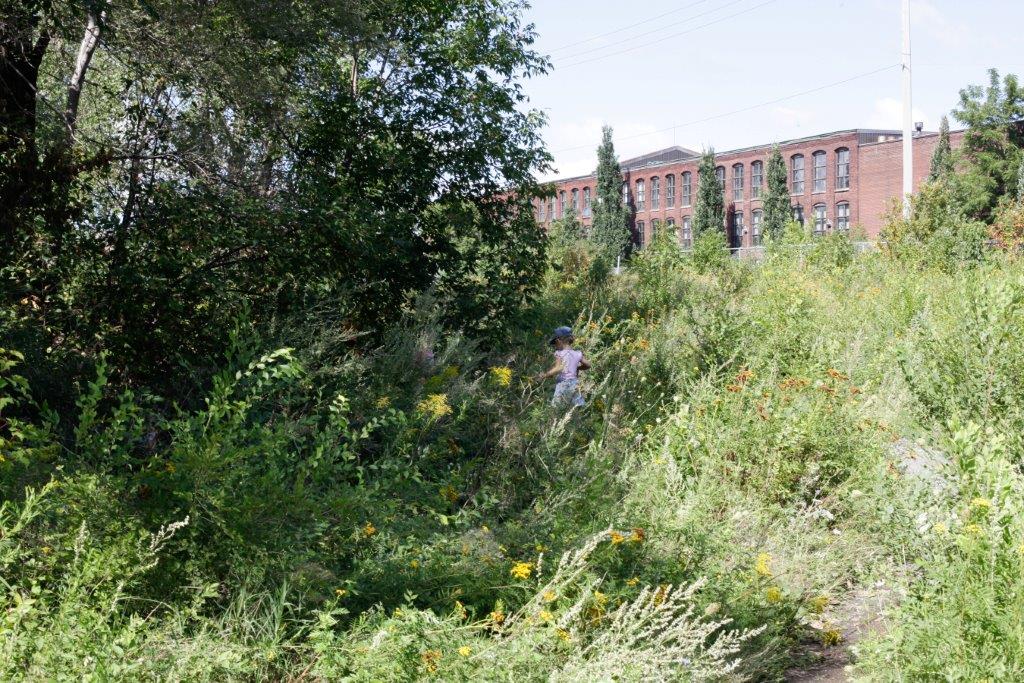 How did Le Lion et La Souris get started?
How did Le Lion et La Souris get started?
Le Lion et La Souris was started in 2013 when Megan, Cam and I were all working with kids in one way or another and felt a palpable desire from local families for an approach that started with respect at its very core. We jumped in with both feet and four years later here we are!
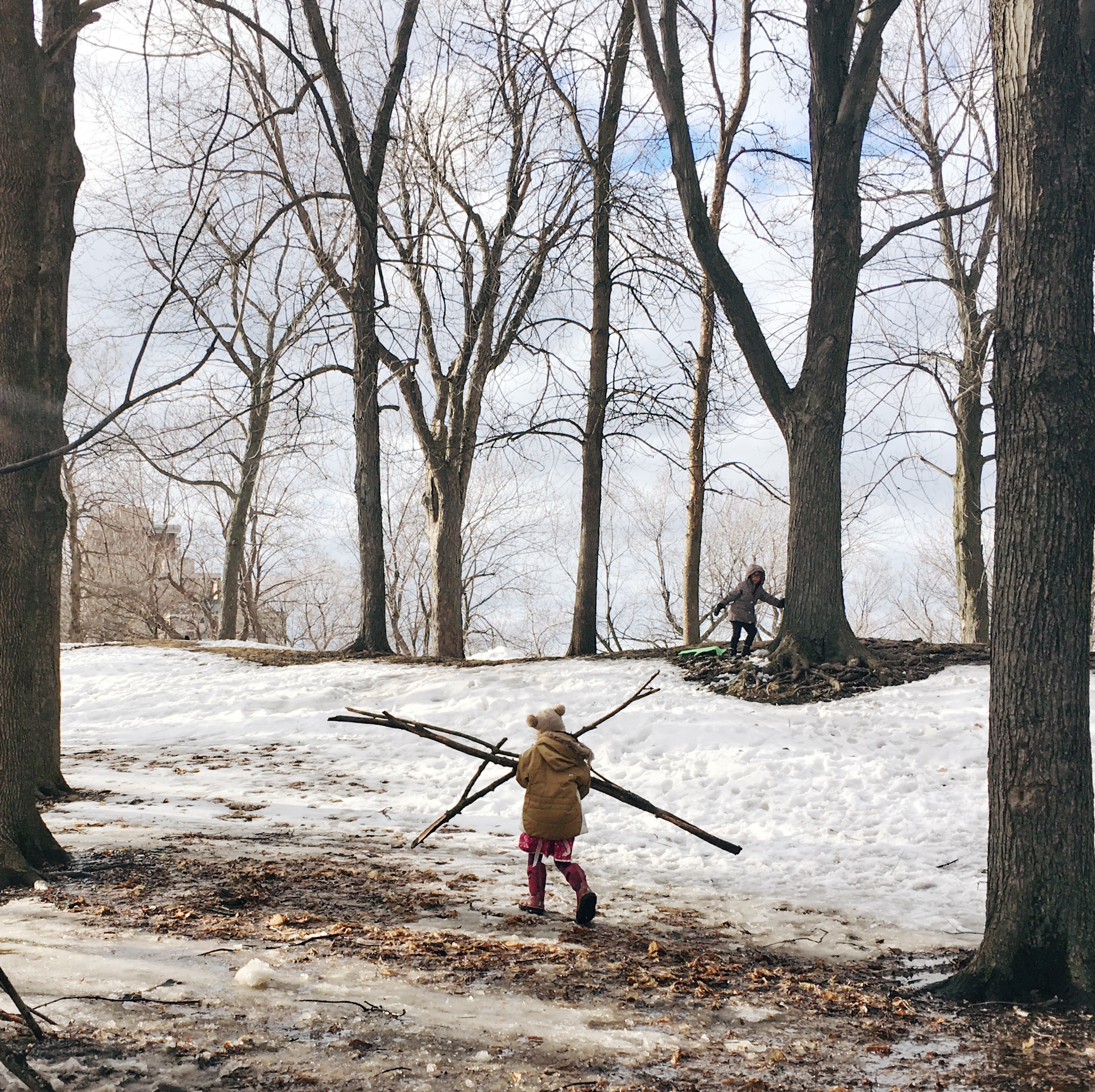
How did the educators at Le Lion et La Souris get started in the FNS field?
FNS came to us naturally over time. We explored a number of alternative approaches to preschool education in the beginning, with early influences from Reggio Emilia and Waldorf, but ultimately found that our time in the Champ des possibles felt the most genuine. FNS connected us more deeply with the co-learning we strived for and embodied respect for both the children and the land in a way that rang true for our community.
 What have been some of the trickiest challenges you’ve faced, and how did you move through them?
What have been some of the trickiest challenges you’ve faced, and how did you move through them?
One of the challenges we faced was transitioning to FNS. The more time we spent outdoors, the more important it became to our work and, of course, the more we understood that we could truly play outside in any weather. Navigating this transition, making sure everyone was well dressed, knowing which warm snacks keep well and which don’t, was a journey to say the least.
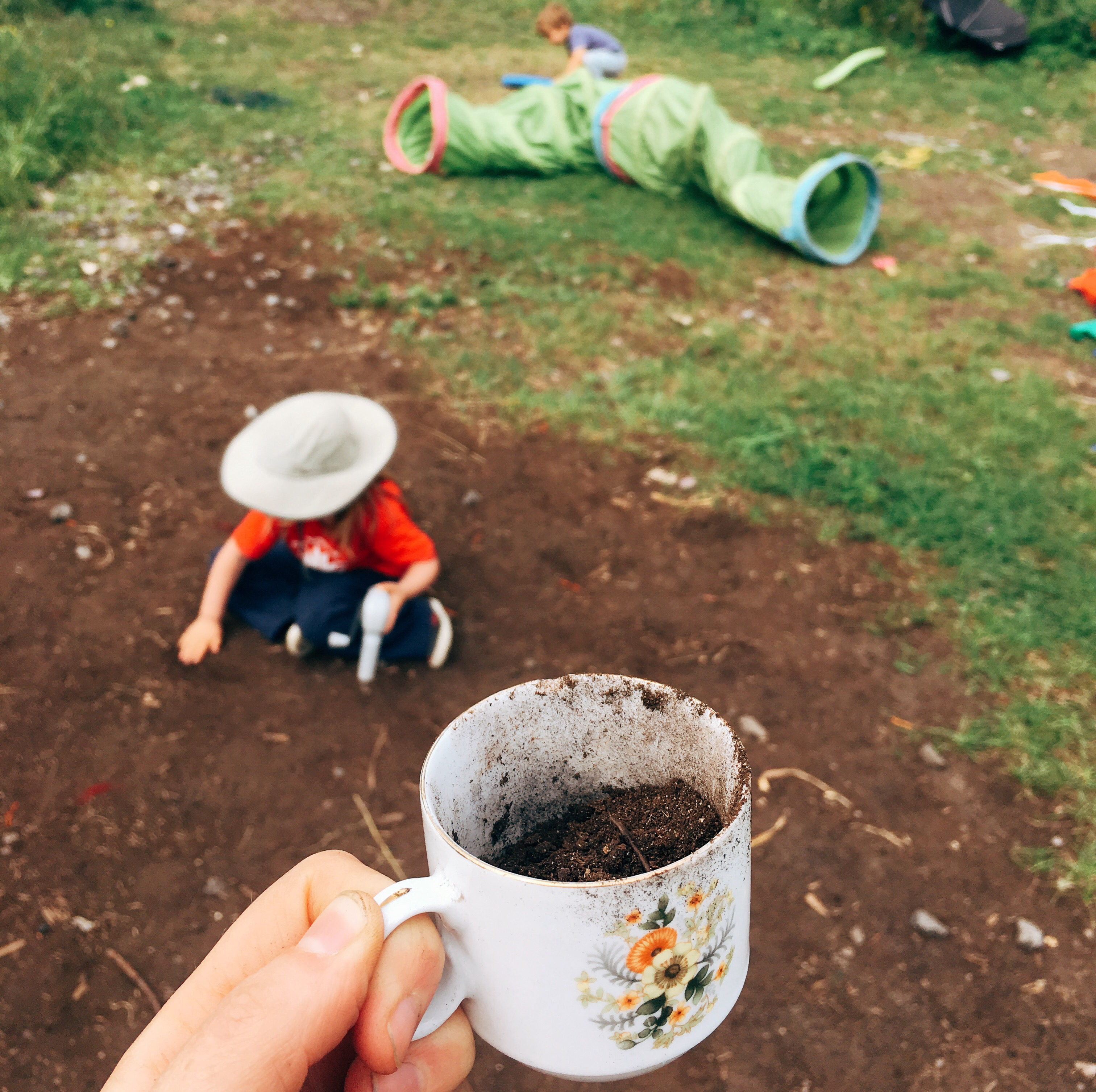 What advice would you pass along to folks hoping to start a FNS program?
What advice would you pass along to folks hoping to start a FNS program?
Have a good handbook. Outdoor play is amazing, but we all need to be in it together and have a clear idea of what helps (and what hinders). Don’t be afraid to be clear about what is flexible and what is a no go (for example, families can arrive to Adventure School late if need be, but we only wait a maximum of 30 minutes before continuing our adventures elsewhere, at which point they are expected to find us wherever we are). We do our best to recognize the reality of family life without compromising the experience.

What hopes do you have for Le Lion et La Souris and for FNS in Québec and/or Canada?
We hope to see FNS continue to grow throughout Québec , particularly in the context of after school care. We are seeing wonderful growth in the way that public daycares are engaging with nature play but are conscious of the fact that once children reach school age many of them spend hours each day in after school care. We have begun working with schools to run outdoor play programs for these kids in care, but would like to see this work incorporated on a larger scale and at a policy level. We need to ensure that the natural spaces regularly available to children are valued for their diversity and as spaces for play.
Thanks, Margaret!

Thanks, Demeter! I love them, too!